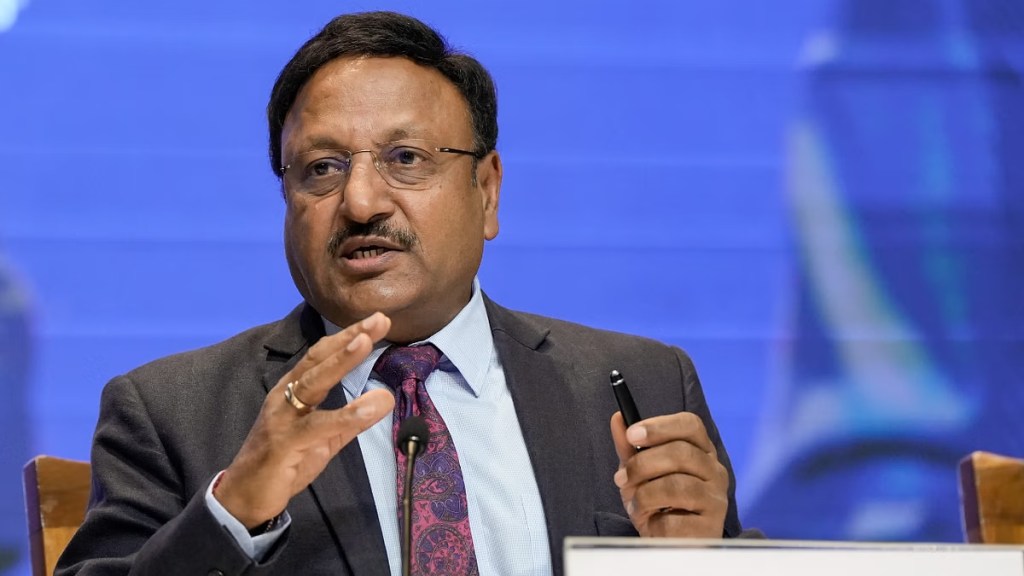After a distinguished four-and-a-half-year tenure with the Election Commission (EC), including nearly three years as Chief Election Commissioner (CEC), Rajiv Kumar will step down on Tuesday. During his tenure, he oversaw 31 Assembly elections and the 2024 Lok Sabha elections.
Joining Election Commission
Kumar, a retired IAS officer from the 1984 batch of the Bihar-Jharkhand cadre, joined the EC as Election Commissioner on September 1, 2020, filling the vacancy left by the sudden resignation of Ashok Lavasa. Lavasa had clashed with then-CEC Sunil Arora during the 2019 Lok Sabha elections over allegations of Model Code of Conduct (MCC) violations involving Prime Minister Narendra Modi and BJP President Amit Shah. Lavasa, who was next in line to become CEC, resigned amid these controversies and personal scrutiny from the Income Tax Department. He later took up a position as Vice-President at the Asian Development Bank.
Tenure
Kumar joined the EC during a turbulent period, alongside CEC Sunil Arora and fellow Election Commissioner Sushil Chandra. Just days after his appointment, the EC announced the Bihar Assembly elections for October-November 2020, which marked the first major elections during the Covid-19 pandemic. The commission implemented restrictions on physical campaigning and raised spending limits for candidates to facilitate virtual campaigning.
Kumar assumed the role of CEC on May 15, 2022, after Sushil Chandra’s retirement. In his time as CEC, Kumar presided over the 2022 elections for President and Vice-President and led preparations for the 2024 Lok Sabha polls. He also oversaw the delimitation of Parliamentary and Assembly constituencies in Assam.
A key focus of Kumar’s tenure was increasing transparency in political party finances. Having previously served as the Financial Services Secretary, he identified several inactive Registered Unrecognised Political Parties as potentially involved in money laundering. Under his leadership, the EC de-listed 284 such parties and declared 253 others as inactive.
In December 2022, Kumar’s EC proposed the concept of remote voting, aiming to make it easier for migrant workers to vote in their home constituencies. Despite a demonstration of the Remote Voting Machine (RVM) prototype, the idea was shelved due to concerns from political parties regarding security and feasibility.
Controversy
Controversy surrounded the EC in early 2024 when Election Commissioner Arun Goel resigned suddenly on March 9, just ahead of the announcement of the 2024 Lok Sabha elections. Although Goel’s resignation, with over three years left in his tenure, sparked speculation, Kumar later stated that the reasons for Goel’s resignation were personal and should be respected. Goel was later appointed as India’s ambassador to Croatia.
During the 2024 election campaign, Kumar called for a higher standard of discourse, urging political parties to avoid personal attacks. The EC issued notices for multiple MCC violations, including to BJP President J.P. Nadda and Congress President Mallikarjun Kharge after controversial statements by their party leaders. The EC faced significant criticism from opposition parties over its handling of these issues, including the delay in releasing voter turnout data.
The EC also oversaw several key elections following the 2024 Lok Sabha polls, including the Jammu and Kashmir Assembly elections, followed by those in Haryana, Jharkhand, and Maharashtra. However, elections in Maharashtra and Delhi were marred by complaints regarding the manipulation of electoral rolls, particularly from Congress and AAP. Kumar defended the accuracy of the voter databases, asserting confidence that “nothing can go wrong.”
Kumar’s tenure, marked by both achievements and controversies, will come to a close after a momentous period in the Indian electoral landscape.


